Peri Lynne Johnson is the Legal Adviser and Director of the Office of Legal Affairs of the International Atomic Energy Agency. She has previously served as the Director of the Legal Support Office, Bureau of Management, of the United Nations Development Programme. Johnson earned her B.A. in French Literature (with a focus in Government and International Relations), with distinction in all subjects, from Cornell University in the United States, and she obtained her Juris Doctor from Harvard Law School in 1991. She is based in the IAEA’s Vienna office.
CEELM:
Please describe for our readers your career leading up to your current role.
P.L.J.: After graduating from Harvard Law School in 1991, I served as a legal associate at Arnold & Porter, a leading Washington, D.C. law firm, handling litigation and international matters. In 1993, I joined the United Nations system and have stayed in the system, in four different capacities, since then: First, I joined the UN High Commissioner of Refugees in Conakry, Guinea, working with political refugees, primarily from Liberia and Sierra Leone; then, from 1995 until 2000, I was a legal officer with the UN Office of Legal Affairs in New York; that led to my joining the United Nations Development Program legal office where I stayed for ten years, becoming legal advisor in 2007; finally, I was recruited for my current position at the IAEA.
CEELM:
What drew you towards an organization such as the IAEA?
P.L.J.: I had been in New York since 1995, and I had worked in the most rewarding legal positions in New York – the Office of Legal Affairs and the UNDP legal office (as the UNDP manages the Resident Coordinator program of the UN, the UNDP legal office handles many legal issues facing the UN system, not just UNDP-specific legal issues; this made the work very exciting). I was ready for new challenges and applied for this position, as I thought it would be a great opportunity at that stage of my career to specialize in a particular area of international law – nuclear law. I also understood that Director General Amano, who had started his term a year before my arrival, sought to highlight the development aspects of the work of the Agency, work that was not as well-known as the nuclear verification work. Coming from the UNDP, with substantial experience in this area, I was confident that I could play a role in this regard. Furthermore Director General Amano was seeking to increase the number of female staff. During his tenure that figure has increased from 22.5% to 28.4%.
CEELM:
You are the Director of Office of Legal Affairs. What does your role entail precisely and what type of legal work does your team have to handle on a regular basis?
P.L.J.: I serve as the Director General’s Legal Advisor, reporting to him directly. The Office of Legal Affairs has 3 sections with a total of 23 lawyers, 9 assistants, 1 knowledge management specialist, and 3 to 4 legal interns year round. The General Legal Section deals with typical in-house counseling legal work – agreements, contracts/procurement, personnel, and finance. The Non-Proliferation and Policy Making Organs Section deals with safeguards/verification issues and support to our governing bodies: the Board of Governors and the General Conference. The Nuclear and Treaty Law Section deals with nuclear safety, security, civil liability for nuclear damage, technical cooperation, and nuclear power related matters.
In all of our work, our mission is to provide the highest standard of legal services to the Director General, the Secretariat (the departments and staff that make up the Secretariat), and the Policy Making Organs, as well as our Member States, in the development and implementation of Agency activities.
CEELM:
How would you say your role is different than that of a General Counsel/Head of Legal working for a private company?
P.L.J.: Although I have never served as the Head of Legal for a private company, I am sure that in some respects it is similar – managing a staff of lawyers and assistants, ensuring sufficient budget for our activities, providing high quality services for clients. But there are differences. As a public international intergovernmental organization, we are not driven from the perspective of making profit. Our priorities are set by our Member States. Our mission as described above is to provide the best advice possible to support the development and implementation of Agency activities.
CEELM:
As far as we understand, you are responsible for legal matters across 162 jurisdictions? Is this accurate? How do you structure your legal team to cover such a wide set of countries?
P.L.J.: Actually, in view of our status as an international organization, we are not dealing with domestic laws and courts of our 162 Member States or only exceptionally. When we get involved, that would be to advise national authorities, upon request, on how they might choose to adjust their legal frameworks to be in line with international treaties or standards where our Organization has competences.
CEELM:
Do you work with external counsel? If so, on what type of projects?
P.L.J.: Just about all of the work of the Office of Legal Affairs is managed directly by the staff of the Office. However, when necessary, we do use specialized expertise – in national and regional workshops on issues related to nuclear safety and security, for example.
CEELM:
How much time do you spend interacting with regulatory bodies and in what capacity?
P.L.J.: The Office primarily engages with regulatory bodies in connection with our legislative assistance program, during which we advise our Member States on their national nuclear laws. Also, we do engage with regulators in the context of the review meetings for the Convention on Nuclear Safety, which we support together with the Department of Nuclear Safety and Security.
CEELM:
While you are not working solely on the Austrian market, from an in-house perspective, what would you say makes Austria unique amongst other CEE jurisdictions?
P.L.J.: I can’t really comment on how Austria compares to other CEE jurisdictions, however, the Director General always refers to Austria as a model Host Country. It is generally very supportive of the Agency and its activities, including in connection with the ongoing renovation of our laboratories at Seibersdorf.
CEELM:
On the lighter side of things, if not the IAEA, where would you envision yourself working?
P.L.J.: Well, it is hard to consider this, as I am very honored to be here at the IAEA, involved in such important work! Notwithstanding, given my over 20 years in the UN system, it is safe to say that I would imagine myself somewhere in the UN system. After so many years in the UN system, working in the private sector is not really appealing to me. It is really great to work to support the goals of the UN Charter and the Agency Statute, working for peace, security and development of our Member States.
This Article was originally published in Issue 5 of the CEE Legal Matters Magazine. If you would like to receive a hard copy of the magazine, you can subscribe here.
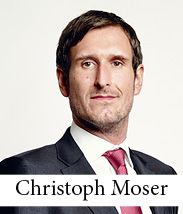
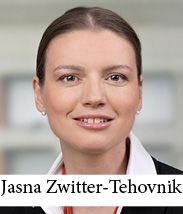
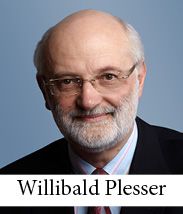
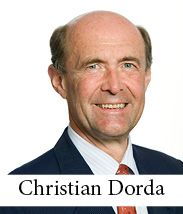
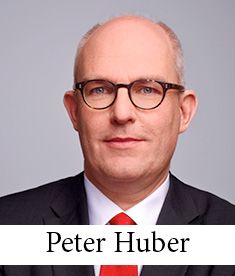
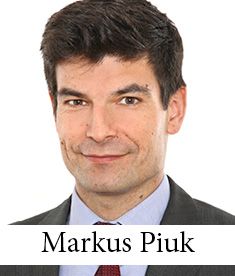
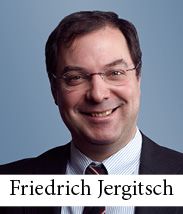
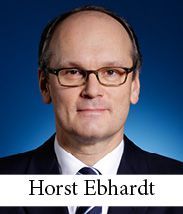
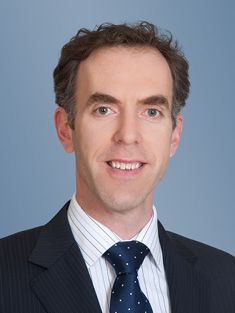
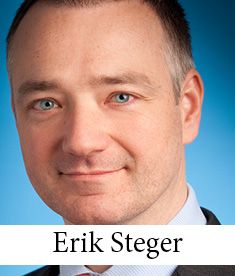 Erik Steger, one of three Managing Partners at Wolf Theiss in Vienna, explains that in the first years of the transition to a post-communist economy in the former Eastern Bloc countries, “expats could assist in bringing the service level up [and] contribute experience with laws that these countries adopted.” And, once they came in, he suggests, “many more than a handful stayed and will now stay for good, [having] learned the local laws … and often learned the language [so that], today, they are excellent advisors in local law as well.”
Erik Steger, one of three Managing Partners at Wolf Theiss in Vienna, explains that in the first years of the transition to a post-communist economy in the former Eastern Bloc countries, “expats could assist in bringing the service level up [and] contribute experience with laws that these countries adopted.” And, once they came in, he suggests, “many more than a handful stayed and will now stay for good, [having] learned the local laws … and often learned the language [so that], today, they are excellent advisors in local law as well.” 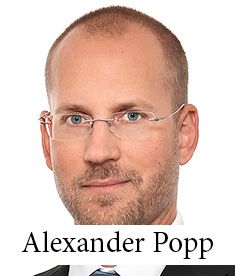
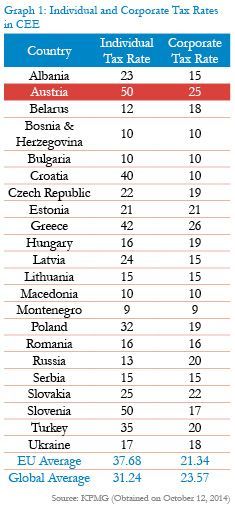 But Clark also believes that Austria’s extremely high income and corporate tax rates (see Graph 1) provide incentive to both firms and lawyers alike to offer their services to Austrian clients from outside the country. According to Clark: “Firms are able to provide more cost-efficient and competitive service to clients by basing their expats in neighboring countries, where costs generally are much lower than in Austria.”
But Clark also believes that Austria’s extremely high income and corporate tax rates (see Graph 1) provide incentive to both firms and lawyers alike to offer their services to Austrian clients from outside the country. According to Clark: “Firms are able to provide more cost-efficient and competitive service to clients by basing their expats in neighboring countries, where costs generally are much lower than in Austria.” 
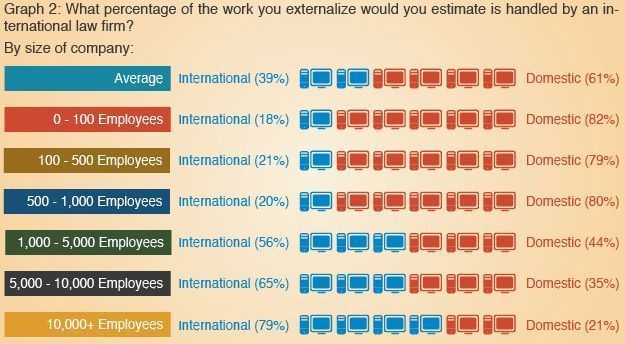
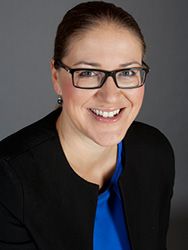
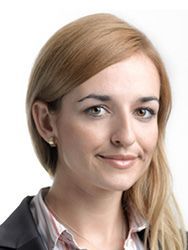 Some people believe that more lawyers would bring the standards down. But I think it would increase the competition and raise the standards. Being a good attorney is about trying and delivering, and being very careful but also very diligent. Hopefully, more competition will be an incentive. On the other hand, I don’t believe that artificially prolonging the trainee period will have a significant impact on young lawyer development. – Veronika Pazmanyanova, Associate at White & Case
Some people believe that more lawyers would bring the standards down. But I think it would increase the competition and raise the standards. Being a good attorney is about trying and delivering, and being very careful but also very diligent. Hopefully, more competition will be an incentive. On the other hand, I don’t believe that artificially prolonging the trainee period will have a significant impact on young lawyer development. – Veronika Pazmanyanova, Associate at White & Case